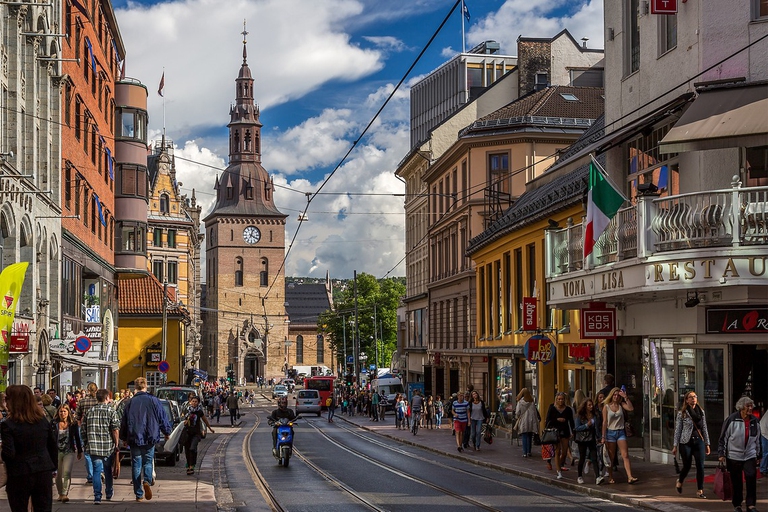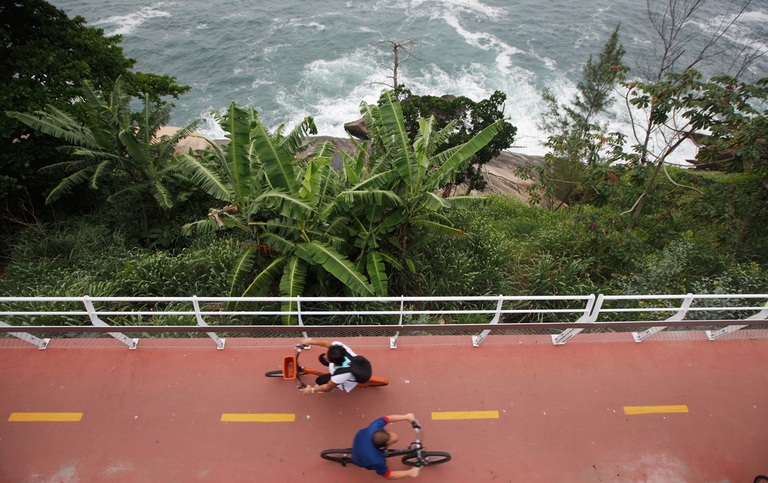
Il presidente degli Stati Uniti ha deciso di non concedere le concessioni per trivellare lungo la costa dell’Oceano Atlantico.
By Anne Hidalgo, Mayor of Paris Clover Moore, Lord Mayor of Sydney Yuriko Koike, Governor of Tokyo Patricia de Lille, Mayor of Cape Town The next four years will be crucial in determining if the world can avoid the worst impacts of climate change, keeping the global temperature rise to below 1.5 degrees. As the
The next four years will be crucial in determining if the world can avoid the worst impacts of climate change, keeping the global temperature rise to below 1.5 degrees. As the United States inaugurates a President who has called climate change a hoax, European leaders are distracted by Brexit and the rise of populist movements across the continent, and China adjusts to the prospect of providing global leadership on climate change, it is now cities and businesses that are delivering the boldest ideas and most ambitious plans for a sustainable low carbon future.
The message coming from city halls and boardrooms around the world is clear. The urgency of the climate crisis and the economic potential for businesses and cities in shifting towards a greener future are too well established to be rolled back by forces of isolationism at a national level.
The private sector is acting swiftly and seriously, with massive investments in the next generation of low carbon technology and shifting to renewables. 365 of America’s largest companies recently wrote to President Trump reaffirming their “deep commitment to addressing climate change through the implementation of the historic Paris Climate Agreement”. Chinese companies recently supplied the city of Shenzhen with the world’s largest fleet of electric buses. In 2015 global investments in renewable energy reached 286 billion dollars and for the first time more than half of all added power generation capacity came from renewables.
Mayors, too, have forged ahead with delivering and implementing climate change solutions through organisations such as C40 and the Global Covenant of Mayors for Climate & Energy. Crucially, they understand the scale of the challenge ahead. The world’s megacities must peak emissions by 2020 and must cut per capita emissions from over five tonnes of CO2 to around three tonnes by 2030.
The scale of the challenge is vast and urgent. The transformation needed will require 375 billion dollars of investment in sustainable infrastructure in 90 of the world’s most important cities. Fortunately, our efforts to tackle climate change also present incredible opportunities. The projects that are set to cut emissions, clean the air that we breathe and build low carbon infrastructure will also improve public health, encourage social inclusion and create jobs.
Take the example of bicycle-friendly cities. The health benefits of cycling are clear, as citizens who cycle instead of driving live up to four months longer. In Mexico City alone healthcare savings could total more than 65 million dollars thanks to bike lanes. By not using their cars, cyclists of this city avoid emitting nearly 1,190 tonnes of greenhouse gases per year. That is equivalent to almost 4.2 million kilometres driven by car.
This is why cities and businesses are working together as never before. Through networks like C40 and We Mean Business, city leaders and businesses are examining the data and committing to serious, science based targets to reduce emissions and cut their environmental impact.
Cities are where the future happens first. It has been the same throughout history and it is true once again as we face the unprecedented threat of climate change. If we can’t rely on the leadership of nations, then mayors, chief executives, scientists, entrepreneurs and citizens will bear the burden instead. Because the consequences of failure are too dire and the opportunities for us to succeed are simply too great.
Siamo anche su WhatsApp. Segui il canale ufficiale LifeGate per restare aggiornata, aggiornato sulle ultime notizie e sulle nostre attività.
![]()
Quest'opera è distribuita con Licenza Creative Commons Attribuzione - Non commerciale - Non opere derivate 4.0 Internazionale.
Il presidente degli Stati Uniti ha deciso di non concedere le concessioni per trivellare lungo la costa dell’Oceano Atlantico.
It’s not possible to prevent people from fighting for the climate. Naomi Klein talked at the Climate Action Zone, Paris. Here’s what she said.
Le centrali a carbone inglesi saranno dismesse entro il 2025, per far posto a quelle a gas, ma anche al nucleare. Una vittoria a metà.
A report by Ember explains that in 2025 electricity generation from renewables (solar, wind and hydropower) surpassed that from fossil fuel sources.
The Tyler Prize, considered the “Nobel Prize for the Environment,” has been awarded to Toby Kiers, an American biologist working in Amsterdam.
Belgium is one of the countries most exposed to climate change. Dune–dikes are a solution to curb sea-level rise.
Between October 2024 and September 2025, the average temperature in the Arctic was 1.6 degrees Celsius higher than during the 1991–2020 period.
Undeclared conflicts of interest, paid authors, lack of transparency: one of the most cited studies on glyphosate, published in 2000, has been retracted.
The Copernicus service has released data for the first eleven months of 2025: global warming is set to come close to last year’s record.









